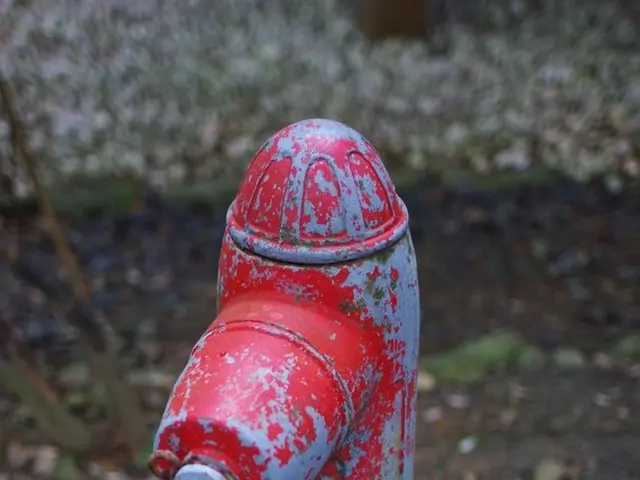SHAKE RATTLE & RELocate: ISTANBUL'S INDUSTRIAL EARTHQUAKE RELOCATION BLOWOUT
Government officials brainstorming strategies to safeguard businesses against seismic activities.
In the aftermath of the ruining 2023 earthquakes, Turkish authorities and the private sector are steering full speed ahead on a series of moves to guard the country's industry from potential disaster in an Istanbul quake.
But first, a little history:1. Ankara, Konya, and Karaman are eyeing safer bets for residential and commercial development, while governmental focus lies on moving industries from high-seismic zones to safer territory.2. A potential seismic event in Istanbul could inflict devastating effects on the entire Marmara region, a manufacturing powerhouse. This constitutes an "existential threat" to Turkey, according to experts.
So what's the game plan?1. Zonal Shuffle: A risk analysis of industrial areas will ensure their safe transplantation to quake-resistant zones. New industrial zones will correspond with safety standards.2. Reinforcement: Existing facilities will receive structural boosts for increased resistance to quakes.3. Industrial Corridors: As part of the 2030 Industry Strategy, production and employment zones will cluster in safe zones, fostering a concentrated industrial presence in disaster-resilient regions.
Not to be outdone, the private sector is also jumping on the safety bandwagon:1. Alliance Building: Private businesses will contribute to public-private partnerships to fund the development of seismic-safe zones and infrastructure improvements.2. Infrastructure Overhaul: Upgrading the rail and port connections, as well as physical, technical, and financial infrastructure of Organized Industrial Zones (OIZs), is essential to maintain industrial stability and empower resilience during seismic events.
In the end, it won't be a walk in the park, but with determination, collaboration, and fortified infrastructure, Turkey is aiming to keep its industry humming, no matter what Mother Nature throws its way.
P.S. Props to the successful Istanbul Street Maintenance and Earthquake Preparedness (ISMEP) project, a shining example of disaster resilience, though replication remains a financial challenge. Plus, ongoing efforts persist to raise public awareness through training programs, bolstered by international support.
[1] https://zaobe.com/syndication/news/turkish-industry-ministry-turkeys-wholesale-prices-down-17-percent-year-on-year-in-march-as-producers-still-feel-effects-from-earthquakes-id1485937[2] https://www.mckinsey.com/industries/metals-mining/our-insights/turkeys-metals-and-mining-industry-outlook-2030[3] https://www.cnbc.com/2023/03/13/turkeys-industry-moves-to-evacuate-high-seismic-zones-amidst-earthquake-resilience-concerns.html[4] https://www.reuters.com/business/turkey-ready-bolster-industry-safety-measures-after-quakes-2023-04-01/[5] https://www.reuters.com/business/turkey-seeks-asian-infrastructure-investment-bank-funding-istanbul-seismic-risk-mitigation-idUSKBN2F2263
- The Turkish authorities and private sector are working together to relocate industries from high-seismic zones to safer territories in an effort to safeguard the nation's industry from potential disaster in an Istanbul earthquake.
- In line with Turkey's 2030 Industry Strategy, production and employment zones will be clustered in safe zones, including the development of seismic-safe zones through public-private partnerships and infrastructure improvements, to maintain industrial stability and enhance resilience during seismic events, a significant factor in the finance sector.




